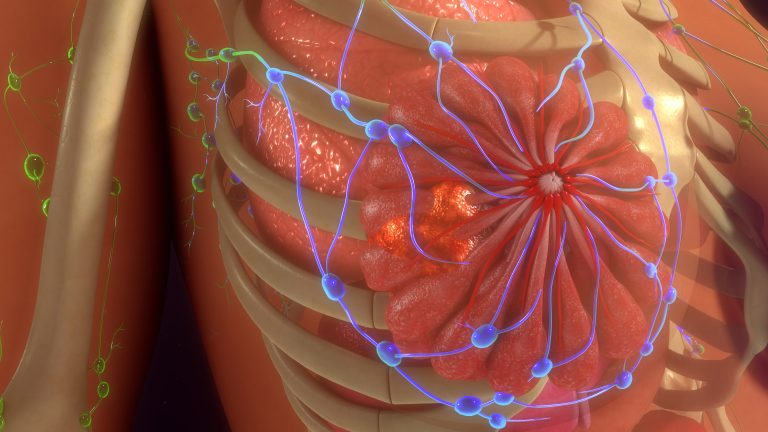
Looking at the 21-gene expression assay (recurrence score [RS]) and response to 3-week preoperative endocrine therapy (ET) can guide early breast cancer treatment, according to results of a pioneering trial.
The WSG-ADAPT-HR+/HER2–trial, the authors say, demonstrates that systemic treatment is informed using RS and ET response, it is feasible in clinical routine, and it spares pre- and postmenopausal patients with ≤ 3 involved lymph nodes from chemotherapy.
Senior author of the study is Nadia Harbeck of LMU University Hospital in Munich. She told Inside Precision Medicine, “Endocrine response assessment adds valuable information to gene expression testing, particularly in premenopausal patients.“
In cases of luminal (hormone receptor [HR]+ human epidermal growth factor receptor 2 [HER2]–) early breast cancer, which patients need chemotherapy (CT) in addition to endocrine therapy (ET) is still debatable. Large prospective trials have demonstrated that gene expression assays support therapy decision making in patients with up to three involved lymph nodes. But WSG-ADAPT-HR+/HER2 appears to be the first phase III trial combining a gene expression assay (RS) and response to 3-week preoperative ET to guide systemic therapy.
In this study, patients with regional lymph node status 0-1, HER+ HER– early breast cancer (n = 2,290), had 5-year invasive disease-free survival of 92.6% (95% CI, 90.8 to 94.0) with recurrence score (RS) 12-25 and endocrine response (experimental arm) versus 93.9% (95% CI, 91.8 to 95.4) with RS 0-11 (control arm) without CT. 5-Year distant disease-free survival was 95.6% versus 96.3%, and 5-year overall survival 97.3% versus 98.0%, respectively; differences were similar in age and nodal subgroups.
Harbeck said that, “In premenopausal patients, ovarian suppression together with endocrine therapy increase the likelihood of endocrine response, i.e. of having Ki67 in the surgical specimen of 10% or less. We published an algorithm based on the ADAPT data in the internet – clinicians can use it to see the probability of endocrine response of their patients’ tumors. www.enrep.info.”
In an accompanying editorial, Mitch Dowsett of the Royal Marsden Hospital in London noted, “Short-term presurgical therapy can provide useful added information around the Recurrence Score test cut point of 25 and is an excellent scenario for discovery of biomarkers of resistance to endocrine therapy that have the potential to guide the selection of agents alongside adjuvant endocrine treatment.”
Harbeck explains that, “ADAPT is the first international phase III trial incorporating endocrine response assessment in clinical practice in more than 5,000 patients from 80 centers and acting on the results. It thus demonstrates that endocrine response assessment by a short preoperative endocrine therapy is feasible and adds clinically relevant information. It can help to spare chemotherapy in patients, not just in post- but also in premenopausal patients. “
The team are currently running a translational research project funded by the German Cancer Aid of looking at molecular predictors of endocrine response and expect to see the first results by the end of this year.
“We know already that even patients with a high locoregional tumor burden but endocrine responsive tumors do not respond well to chemotherapy,” Harbeck told Inside Precision Oncology. “In our follow-up trial ADAPT cycle we therefore ask the question whether chemotherapy can be replaced by an endocrine-based approach with a CDK 4/6 inhibitor in HR+HER2- early breast cancer.”













